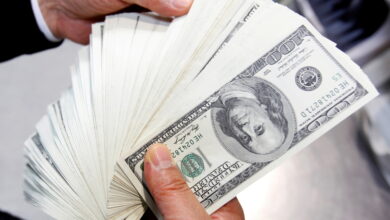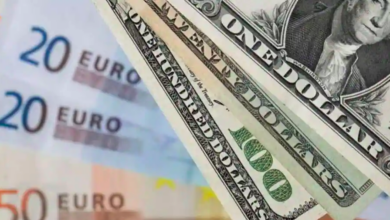The Egyptian pound non-deliverable forwards market has almost ground to a halt in recent weeks as buyers flee risk because of the euro zone debt crisis.
Just two months ago, traders estimated notional turnover in the offshore NDF market was running at about US$20 million to US$40 million a day as foreign institutions used NDFs to speculate.
But by pushing the euro down to four-year lows against the dollar and increasing safe-haven demand for dollars, the euro zone crisis is depriving the NDF market of liquidity.
The shift illustrates the fragility of trade in frontier markets that are heavily dependent on fund flows from foreign financial institutions, which can quickly pull in their horns when the global climate worsens.
“Risk aversion is quite high at the moment. It will depend a lot on what happens. The whole situation in Europe has got people a bit scared,” said a London-based trader of Egyptian pound NDFs.
“There is no interest to sell dollars against Egyptian,” said another trader in London, estimating that six months ago, notional totals of between US$100 million and US$200 million were going through the Egyptian pound NDF market on some days.
“Now it just tends to be the odd trade. Obviously the volatility of the euro is a particularly adverse fact.”
By some estimates, Egypt has Africa’s biggest spot foreign exchange market after South Africa, but capital controls make it hard for banks to profit in the onshore spot market for Egyptian pounds , which is tightly managed by the central bank.
So speculators have flocked to offshore NDFs, which are contracts for notional currency trades settled on future dates. Traders used the 12 p.m. spot rate on the Egyptian foreign exchange page on Reuters as their base rate.
About 30 percent of NDF demand was linked to underlying commercial or investment transactions and the rest was speculation, traders estimated.
NDF trade was boosted by the fact that early this year, the pound’s stability attracted a strong carry trade, with investors raising money in lower-yielding currencies and exchanging it to buy 91-day Egyptian Treasury bills.
Foreign investors were happy to obtain after-tax yields of around 9 percent on Egyptian bills on the assumption that the local currency would remain steady.
“Egypt is the darling of international yield-hungry investors,” one NDF dealer said at the time.
Eleven economists polled by Reuters early last month forecast that the pound would remain virtually unchanged at around 5.51 against the dollar until the end of 2010.
Since then, however, the pound has dropped to 5.65, a 14-month low, as Egypt has allowed the currency to weaken in response to the dollar’s crisis-induced strength against the euro and the currencies of Egypt’s main trading partners.
Although the Egyptian pound’s fall has been small compared to the drops of some other emerging market currencies during the crisis, it has shattered investors’ faith in the stability of the pound.
Non-resident holdings of Egyptian T-bills rose to about US$5.5 billion in mid-March, Deutsche Bank calculated in an April 15 report.
But they have now fallen back substantially, said Moustafa Assal, a bond specialist at Beltone Financial.
“The US dollar’s appreciation against the euro forced many non-residents to sell Egyptian Treasury bills,” Assal said. “The EU debt crisis is pushing equity and fixed income investors out of Egyptian markets.”



